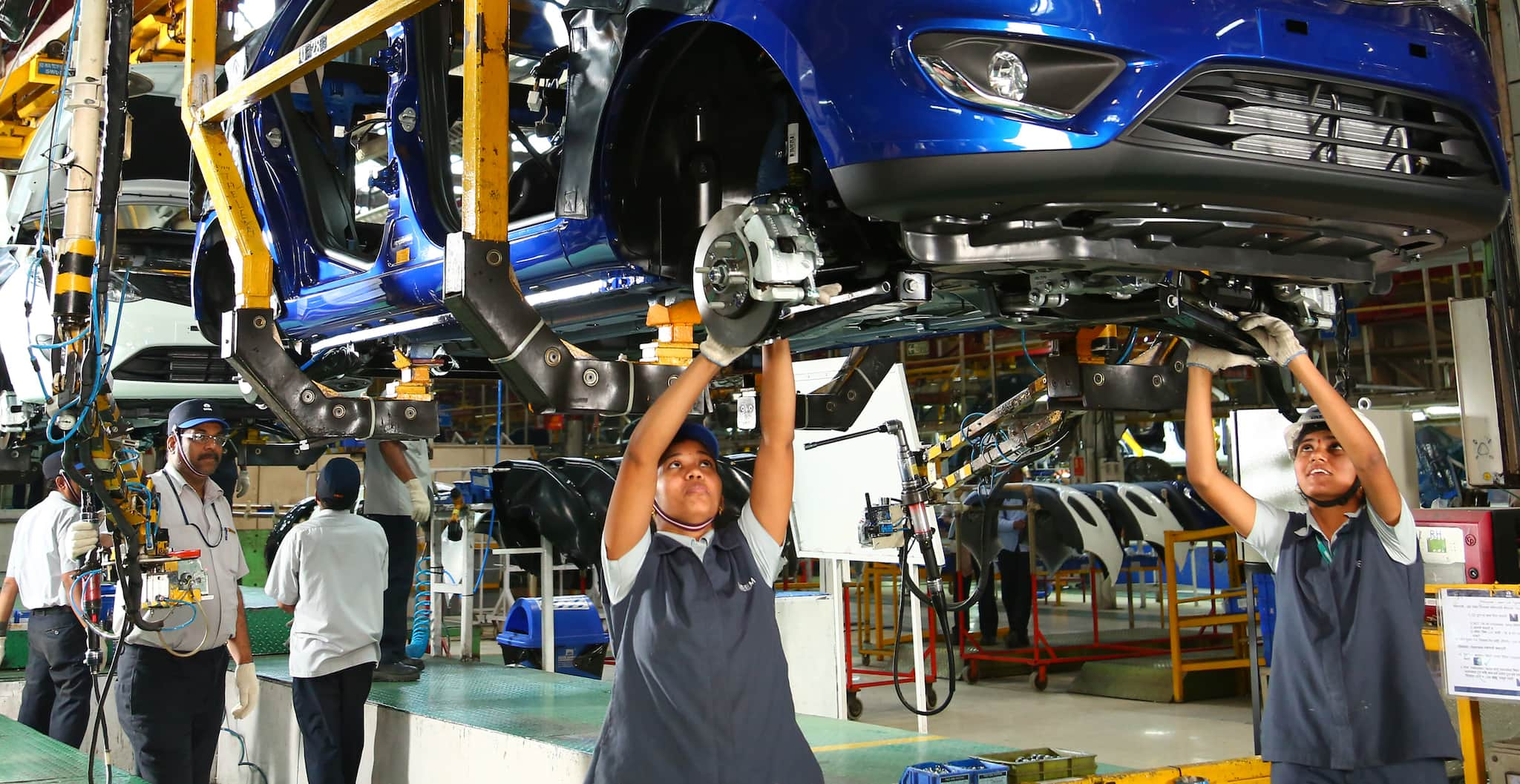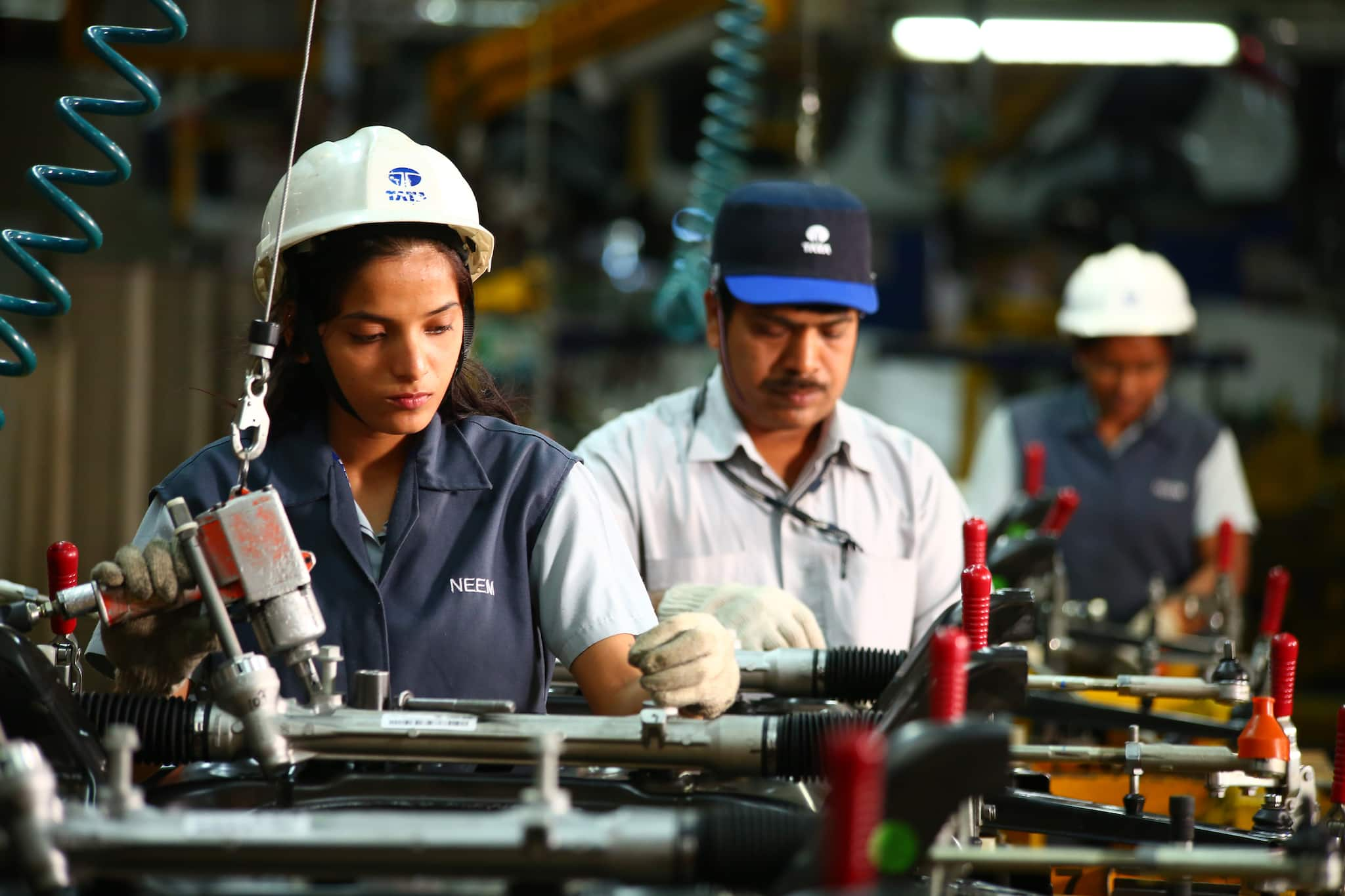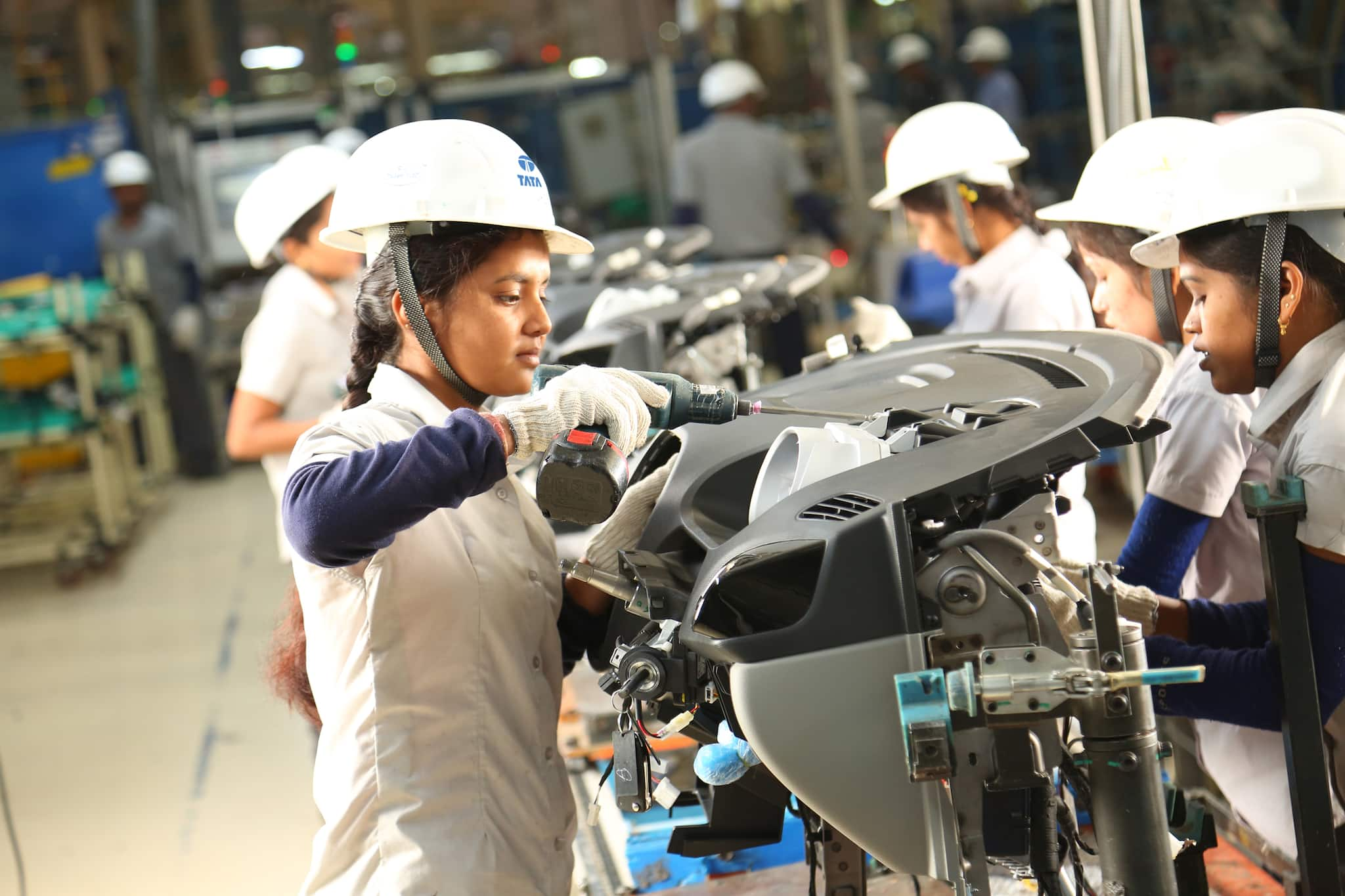



Sitaram Kandi, chief human resources officer (CHRO) of Tata Motors, was three minutes late for this interview. Reason: As he was leaving, Kandi was approached by an employee in a traditional role, with some weighty concerns. Amid the technological disruption at India’s largest electric vehicle (EV) manufacturer and the automobile industry in general, the employee expressed uncertainty about the future, saying, "I don't see any future. What should I do? Where should I go? Should I switch jobs, or should I stay?"
Many individuals deeply involved in the traditional internal combustion engine (ICE) industry are suddenly feeling uncertain about their future. They're questioning their career longevity, wondering, "What is my shelf life?"
According to Kandi, Tata Motors currently faces two challenges: There is a significant shortage of talent in emerging technologies such as EV tech, battery tech, high-voltage systems, software-driven vehicles, data and artificial intelligence (AI).
Secondly, the morale and motivation of the existing workforce are a worry.
“Imagine someone who has worked in the ICE sector for 20 years suddenly realising that, for various reasons, they might only have five or six years left in their career. This belief can be incredibly demoralising and can make it difficult to keep them motivated and productive,” Kandi told Moneycontrol.
To address these issues, Tata Motors has implemented several strategies. The company has recruited talent from top institutes with expertise in new technologies, focusing on individuals with a Master of Technology (MTech) degree and PhDs, ensuring no manpower shortages on the EV side.
 Shopfloor at Tata Motors, Pune
Shopfloor at Tata Motors, PuneFurther, the capability-building roadmap includes three progressive stages: awareness, specialist, and expert, covering the gamut from entry-level engineers to leaders. The Tata brand has also partnered with local universities to offer specialised MTech programmes in EV tech.
Interestingly, employees with 15-20 years of experience in mechanical engineering or production are retrained in future technologies to reduce their anxiety. In Pune, around 180 employees are enrolled in these programmes; in Gandhinagar, 60; in Lucknow, 40.
Last year, Tata Motors announced an ambitious plan to equip over 50 percent of its workforce with new-age auto tech capabilities within five years. The company has already equipped 20 percent of its workforce with such skills.
Changing hiring processThe auto giant is currently undertaking significant hiring initiatives across several key departments. This includes engineering in the research and development (R&D) function, commercial team for business growth and market expansion, and customer service.
However, amid the ongoing rapid adoption of technology in the once-traditional auto industry, the process of hiring new employees has evolved. Kandi said it has “changed significantly”.
In the past, when Tata Motors needed an engineer, in operations, for example, the first instinct was to recruit from other OEMs (Original Equipment Manufacturers) or tier 1 suppliers. This approach was straightforward because these candidates were ready to integrate seamlessly into operations, and required minimal additional training.
However, today's landscape is different.
“We are now actively seeking to bring in diversity beyond the obvious choices. Instead of just focusing on OEMs and traditional Tier 1 suppliers, we are exploring talent from a variety of sectors such as FMCG (Fast-Moving Consumer Goods), IT companies, IT-enabled companies, data-driven companies, and startups. We are also looking at recruiting directly from campuses and hiring PhDs,” Kandi said, adding that this broader perspective on diversity is key to Tata Motors’ current and future success.
 Shopfloor at Tata Motors, Pune
Shopfloor at Tata Motors, PuneDespite the recent mass layoffs across the IT and allied industries in the last two years, the dynamic of the job market hasn't changed much, at least for Tata Motors.
For Kandi, certain skills remain a challenge to find. But it's more about the mindset of potential candidates. For example, if the company needs data analysts, it needs to recruit from software companies. However, the work culture in software companies is vastly different from that in a manufacturing setup.
“This difference causes apprehension among candidates, making them reluctant to switch industries because it's not just about the data skills; it's about the entire industry transition. To address this, we need to bring these candidates into our environment, convince them of the benefits, and show them how our company operates…..We have successfully attracted many individuals from other sectors,” he said.
Diversity effortsIn the past, Tata Motors observed that it didn't have many senior leaders. There was a clear gap in the senior leadership team. Now, the strategy is to evaluate the existing workforce and set realistic targets for diversity.
Last year was particularly notable because the company promoted one vice president in finance and hired about five senior General Managers. Over the last two years, Tata Motors has aimed to have a minimum of 20 percent gender-diverse lateral hires.
 Shopfloor at Tata Motors, Pune
Shopfloor at Tata Motors, PuneIn 2023, among 1,000 lateral hires, more than 20 percent were women. Additionally, over 50 percent of the 300 campus recruits were women. That increased to 55 percent this year for its 403 campus hires.
Nearly one in four shopfloor hires at the company today are women operators. Besides, Tata Motors has initiatives such as a 100 percent female-operated assembly line for the Harrier and Safari models, where 2,000 women work end-to-end.
Discover the latest Business News, Sensex, and Nifty updates. Obtain Personal Finance insights, tax queries, and expert opinions on Moneycontrol or download the Moneycontrol App to stay updated!
Find the best of Al News in one place, specially curated for you every weekend.
Stay on top of the latest tech trends and biggest startup news.